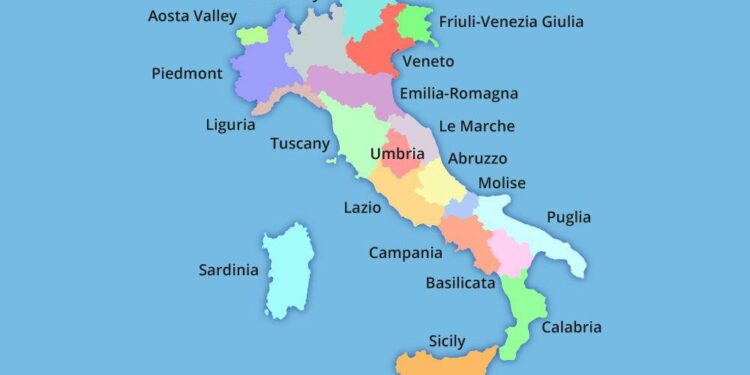Italian Regions Reassess Diplomatic Relations Amid Gaza Crisis
In response to the intensifying conflict in Gaza, several Italian regions have taken the unprecedented step of cutting diplomatic and economic ties with Israel. This move reflects a growing wave of public concern over the humanitarian toll of the ongoing violence and signals a shift in regional political priorities toward solidarity with Palestinian civilians. Local governments are increasingly vocal about their ethical responsibilities, emphasizing human rights and humanitarian aid as central to their foreign policy considerations.
The decision by these regions is not isolated but part of a broader grassroots movement fueled by widespread public demonstrations and advocacy from numerous civil society organizations. These groups have urged local authorities to take concrete actions that express disapproval of military operations impacting civilian populations.
Concrete Measures Adopted by Regional Authorities
To manifest their stance, affected Italian regions have implemented several initiatives aimed at both symbolic and practical support for Gaza’s population:
- Halting Trade Partnerships: Several administrations have suspended existing trade agreements and cultural exchanges with Israeli municipalities.
- Allocating Funds for Humanitarian Relief: Increased financial support is being directed toward NGOs providing medical aid, food supplies, and shelter assistance within Gaza.
- Cultural Awareness Campaigns: Educational events, exhibitions, and forums are being organized to inform citizens about the conflict’s humanitarian consequences.
This collective regional approach challenges Italy’s national government to reconsider its diplomatic posture amid mounting pressure from constituents demanding ethical foreign policy decisions aligned with human rights principles.
The Role of Local Governments in Shaping Italy’s Foreign Policy Narrative
The recent actions taken by Italian regions such as Lazio, Tuscany, Lombardy, and Liguria highlight an emerging trend where subnational entities assert influence over international affairs based on moral imperatives rather than traditional geopolitical alliances. For instance:
- Lazio: The capital region has witnessed large-scale protests advocating for Palestinian rights while urging peaceful resolution efforts.
- Tuscany: Regional officials publicly condemned violence against civilians while promoting dialogue initiatives between conflicting parties.
- Lombardy: Leaders called explicitly for an immediate ceasefire amid escalating hostilities affecting civilian populations on both sides.
- Liguria: Emphasized facilitating humanitarian corridors ensuring safe passage for aid workers into affected areas.
A recent poll conducted in early 2025 indicates that approximately 68% of Italians back these regional governments’ positions—a notable increase compared to previous years—signaling a shift towards prioritizing humanitarian concerns within public opinion. This evolving dynamic underscores how local governance can serve as a catalyst influencing national diplomacy through advocacy rooted in community values.[1]
Nurturing Peaceful Engagement: Solidarity Beyond Borders
Beyond severing formal ties with Israel, many Italian communities are actively fostering environments conducive to peacebuilding through dialogue and mutual understanding. Recognizing that sustainable solutions require inclusive conversations involving all stakeholders affected by conflict, local leaders promote initiatives designed to bridge divides both domestically and internationally.
- Civic Dialogue Forums: Workshops bringing together diverse groups—including immigrants from Middle Eastern backgrounds—to share experiences related to displacement and trauma caused by war;
- Mental Health Support Networks: Establishment of counseling services tailored specifically for refugees or families impacted indirectly through diaspora connections;
- Civic Advocacy Movements: Mobilization campaigns encouraging policymakers at all levels—from municipal councils up to parliament—to prioritize peaceful resolutions backed by robust humanitarian assistance programs;
This multifaceted approach highlights how compassion-driven policies can emerge organically within communities facing global crises’ ripple effects—demonstrating solidarity not only symbolically but also practically through sustained engagement efforts.< / p >
A Broader Perspective: Implications for Italy’s International Positioning
The collective withdrawal from Israeli partnerships among various Italian regions marks more than just localized dissent; it signals potential recalibrations within Italy’s overall foreign relations framework concerning Middle Eastern geopolitics. As tensions persist globally—with increased polarization evident across international platforms—the country faces complex choices balancing strategic alliances against growing domestic calls for justice-oriented diplomacy.< / p >
This development coincides with shifting European attitudes towards conflicts abroad; similar movements advocating sanctions or diplomatic distancing have emerged elsewhere on the continent amid rising awareness about civilian suffering during armed confrontations.[2]
The Road Ahead: Monitoring Impact on Diplomatic Ties
The unfolding scenario invites close observation regarding how Rome will respond diplomatically given pressures from its own constituent parts alongside external geopolitical realities. Analysts suggest that if regional voices continue gaining momentum nationally,Italy may adopt more nuanced stances reflecting internal divisions while navigating complex alliances abroad . Such shifts could redefine Italy’s role as mediator or participant within broader Middle East peace processes moving forward.< / p >













